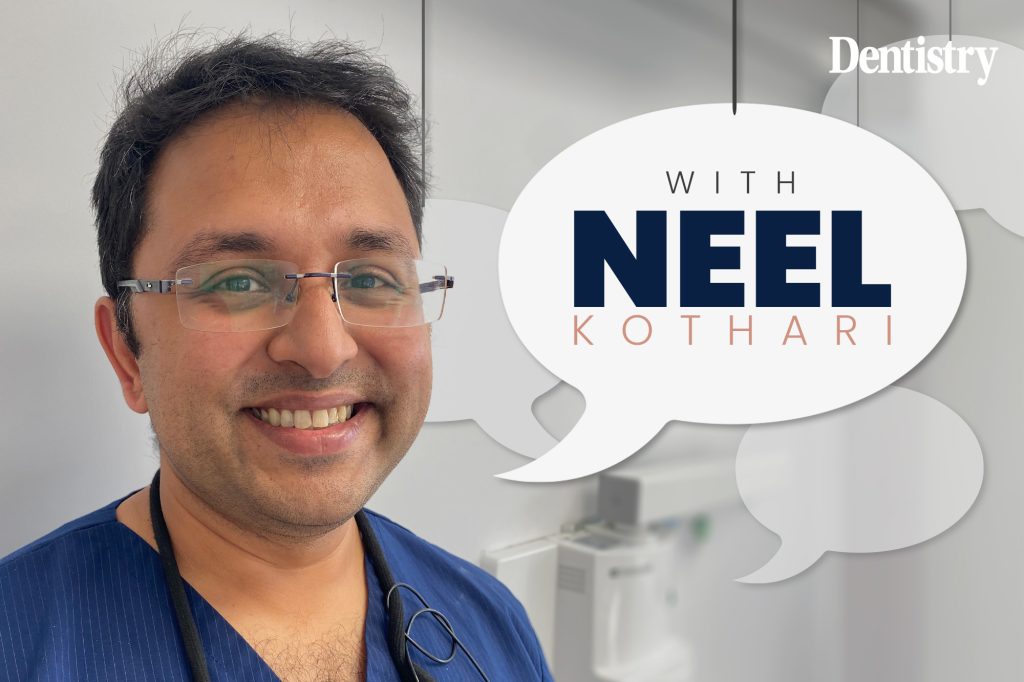
Neel Kothari explains how reintroducing dental reference officers could help to stop mistakes in dental regulation from slipping through the cracks.

In the year 2000, professor of psychology James Reason proposed his ‘Swiss Cheese’ model of accident causation. This is also known as the ‘cumulative act effect’ and has gained widespread acceptance. It purports that accidents don’t often happen due to a single cause, but rather a chain of errors that ultimately lead to a failure.
A pictorial representation of the model shows how adverse events are allowed to manifest by passing through our multiple layers of defence. Ie slipping through the holes in the cheese, when perfectly aligned.
While an imperfect segue, accidents and failures in dentistry share overlapping aspects. For dental clinicians this could manifest in a trip to the GDC, as well as risk patient care.
The threat of regulations
Real or perceived, this threat is greater in the minds of clinicians today than when I qualified almost two decades ago. In 2020 the NHS publication Dentists’ Working Patterns, Motivation and Morale stated that nearly two-thirds of principal dentists and over half of all associate dentists across the UK often think of leaving dentistry. The risks of litigation and the cost of indemnity were cited as two of the three main factors lowering morale. It comes as no surprise that ‘regulations’ are deemed a major cause of low morale particularly for principal dentists.
Regulations aren’t fully understood, especially within the NHS. Even experts who purport to inform the GDC on their correct interpretation are often wrong when challenged in the courts. This lack of clarity exemplifies how we are missing a layer of defence from the outset.
A case that slipped through the cheese holes
If we look at the most egregious cases of failure, such as that of Dr Desmond D’Mello (whose actions sparked the biggest patient recall in NHS history), it’s plain to see that, despite an abundance of regulations, there were no preventative steps providing patients with a layer of defence. To be clear, Dr D’Mello single handedly completed 21,846.45 UDAs in 2007, 20,577.80 UDAs in 2008 and 22,139.75 in 2009. His workload was designed for at least three full-time dentists.
Dental professionals instinctively know that there simply isn’t enough time to carry out proper cross infection measures or ethically minded treatment planning when seeing 50 plus patients per morning. Yet despite this, D’Mello initially passed his CQC inspection. One year, he did so many UDAs that the PCT at the time awarded him more. I suspect that most NHS dentists reading this article will have an idea as to how Dr D’Mello managed to complete 20,000 plus UDAs. Potentially a better idea than any of the regulatory bodies whose job it is to protect the public.
Cost cutting exercises
It’s my contention that this has happened because we as a profession are poorly regulated. The layers of defence that dentists and patients formerly had have been systematically eroded as part of cost cutting exercises. One example of these defences is dental reference officers.
Put simply, regulators and rule makers lack the expert behaviour that can only be achieved by working within a system and understanding its nuances. Some dentists might not want oversight of their work as previously afforded pre-2006. However this is a minor irritation compared with ending up in front of the GDC. It gives the profession the strongest barrier to preventing a failure within NHS dentistry, apart from leaving the health service altogether.
It’s for these reasons that I believe we desperately need dentists regulating NHS dentistry and to bring back dental reference officers so that the GDC isn’t the first organisation telling us when we are wrong.
Read more from Neel Kothari:
- Has dental nurses’ registration been a success?
- UK dentistry: expectation versus reality
- Are excessive regulations endangering the public?
- Why we need action on blue on blue GDC referrals
- Is safeguarding in dentistry fair and proportionate?
Follow Dentistry.co.uk on Instagram to keep up with all the latest dental news and trends.


